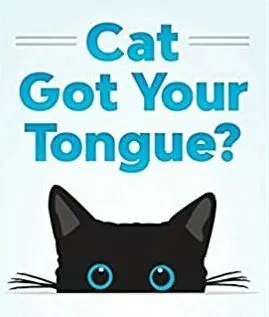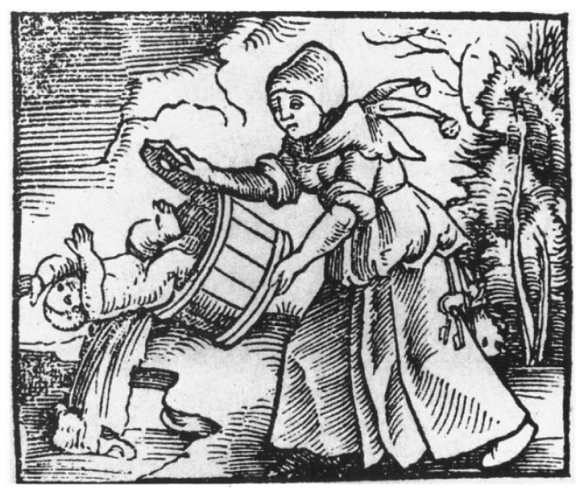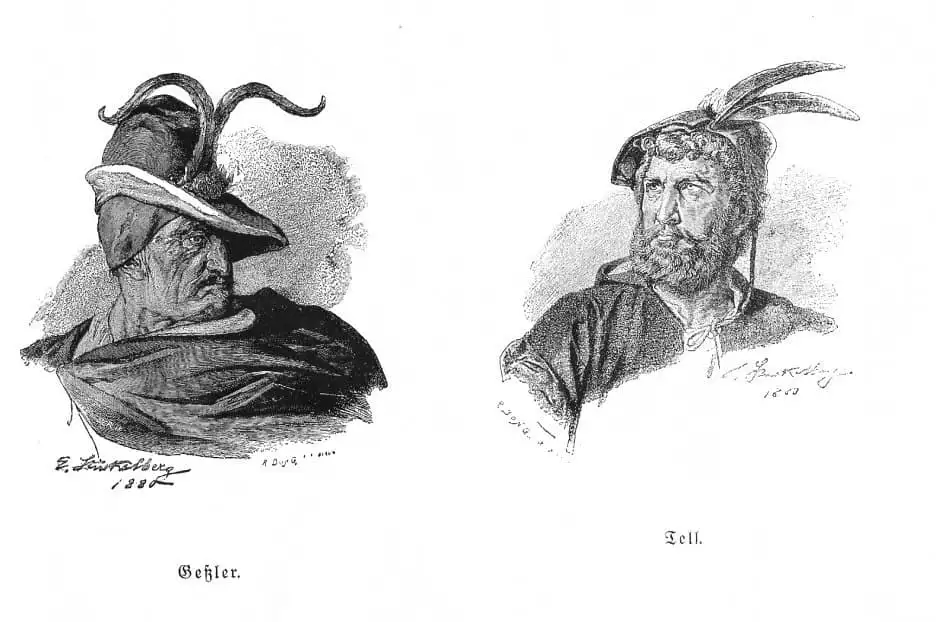- How to Heat Your House with a Wood-burning Stove - December 20, 2021
- 17 Old-Timey Sayings We Still Love to Use Today - September 8, 2020
- 19th Century Recipes for a Hearty Breakfast - July 14, 2017
My Grandparents owned and lived on a working dairy farm outside of Wooster, Ohio. My brothers and I loved to visit as summer days at Grandma’s always meant playing in the hayloft and chasing after the barn cats who lurked around the milk room until someone put out a pan of milk for them.
Grandma was a short, sturdy woman, jolly even. I knew she’d once been Amish, or so the story went but, though she was full of amusing anecdotes and always quick with some pearl of wisdom to light heartedly scold my brothers and I, that was one story she never would fully tell.
I loved her sayings though. They were, as far as I was concerned (at least back then) far better than any that came from my Mother.
1. Mad as a hatter.

One of my favorites was mad as a hatter. Nine year old me had absolutely no idea what a hatter was. I was a big fan of Alice in Wonderland, though, so I thought it must have something to do with the goofy men you might meet in the forest and have tea with.
Of course, what mad as a hatter actually refers to is the effects of mercury poisoning, one of which is insanity. Mercury was used in the manufacture of felt hats and hatters, or milliners, often ended up suffering from excessive exposure to it.
2. Dressed to the nines.
Grandma loved the phrase dressed to the nines. I don’t know what got into Lois, she’d say, but there she was, dressed to the nines at the church picnic, causing all sorts of hubbabaloo. Or, Mrs. Meriweather was always dressed to the nines, even when she went to the grocery store. I ran into her once in the produce aisle and she was wearing a hat and white gloves and everything!
Custom men’s suits took nine yards of fabric to make and were much more expensive than a suit that might not have matching pants or a vest. Dressing to the nines means looking like you purchased the best, the suit that took a full nine yards to make.
Which segues into the related expression of the whole nine yards.
3. The whole nine yards.
There are two explanations for this one. Some people say it refers to that fancy suit that took nine yards of matching fabric to make and implies a person went all out. Other historians say that it means to try one’s best as in going the whole nine yards. WWII pilots were given a nine-yard chain of ammunition so, when a pilot used all of it, he gave the whole nine yards.
4. Don’t let them pull the wool over your eyes.
Grandma was overly concerned with people pulling the wool over our eyes. She cautioned against it at most every opportunity, especially once I was older and navigating the social mine fields of high school and college, steady boyfriends, and first jobs.
Apparently, back in the day when rich bigwigs still wore, well, big wigs, street thugs would pull the wig (or wool) down over their victim’s eyes to confuse him.
5. Mind your Ps and Qs.
My brothers and I were always being told to mind our Ps and Qs, especially when we were out in public or going to a party or other social event. I thought it had something to do with eating all your vegetables as I took Ps to mean peas.
What it really refers to is to keep track of how many pints and quarts you’ve consumed at the tavern so you didn’t end up drunk in a bar fight or jail.
I’m pretty certain Grandma didn’t know the true origin of that one.
6. Let the cat out of the bag.
When it came to presents or news of some exciting excursion she was going to take us on, my Grandma never could keep a secret. “I can’t help it,” she’d say, “I’ve got to let the cat out of the bag.”
We always knew that what was coming next was going to be something cool like going to the state fair to ride a roller coaster or into town for ice cream, or a new box of LEGOS that she’d been unable to resist buying.
Dishonest farmers used to put a cat or some other such animal in a tied bag in an attempt to sell and pass it off as a young pig. Keeping the cat in the bag meant keeping the the buyer in the dark.
7. Cat got your tongue.

Grandma said this one a lot, usually directed at me when she asked me where or what my older brother was up to and I didn’t want to say because I wasn’t, under any circumstances, a tattletale.
This is another one that historians say has two possible sources, both of them with a pretty high ew factor. The first is that it refers to a whip used by the English navy called a cat-o-nine-tails. Victims of the whip were left speechless because of the pain.
The second refers to cutting out the tongues of liars and blasphemers and feeding them to cats, something that was apparently done in days of yore.
8. Scuttlebutt.
Grandma always wanted to know the scuttlebutt or, if she already knew it, she was always willing to share it.
So, she’d say, the scuttlebutt is…
A scuttlebutt was similar to a water fountain and was where a ship’s crew would get their drinking water. Sailors would gather around the scuttlebutt to hear the latest gossip, just like offices employees today who convene around the water cooler and swap stories.
Grandma is in her nineties now and lives in a wonderful assisted living home. The nurses tell me she’s always asking everyone for the scuttlebutt and that’s she’s known as the person who knows things.
Whenever I call or show up for a visit, the first thing out of her mouth is, “So Dearie, tell me, what’s the scuttlebutt.”
9. Kick the Bucket
Lots of things can kick the bucket on a farm, whether it be an animal, a plant, or even an old stool that has lost a leg. Grandma even used the expression to describe milk or a vegetable that had gone bad in the fridge. Don’t eat that apple, she’d say, I’m afraid it’s already kicked the bucket.
The expression comes from the practice of placing a bucket underneath a cow when positioning it on the pulley to be killed at the slaughterhouse. Often, when the ropes were adjusted, the cow’s legs would kick out and knock over the bucket before it was killed.
10. Get off Your High Horse
“You can just get off your high horse and come over here and help me with the washing.”
I (and my brothers) probably heard some version of this every time we complained about doing some chore we thought particularly loathsome or disgusting. I hated folding cloths or hanging my Grandpa’s plaid shirts out on the line. But, there was no arguing with Grandma, and I’d always end up grudgingly getting off my proverbial horse and standing in front of the longest clothesline known to man hanging plaid shirt after plaid shirt up to dry.
In olden days, as a sign of their superiority, military leaders and nobility led parades on horseback.
Get off your high horse became synonymous with stop acting so uppity!
11. Don’t throw the Baby out with the Bath Water

This was always one of my favorite things my Grandma said, mainly because I thought it was down right ridiculous that anyone would ever accidentally throw a baby out with the bathwater.
What it means is that you should be careful not to discard anything valuable when getting rid of unnecessary clutter.
Apparently, during the 1500s, people didn’t bath very often so, when they did, the entire family would use the same bath water. Traditionally, the head of the household would go first, followed by the other males, then the women, and finally the baby. The water, by the end of all this bathing, would become quite cloudy and thick, rendering it difficult to see a baby. Mothers, if they weren’t paying close attention, might accidentally toss their infant out with the dirty water.
Sounds a little far fetched to me but I suppose it must have happened as the saying is still around today.
12. Worth an Arm and a Leg
This expression comes from the practice of painters charging more for a portrait when he had to paint the arms and legs of a subject.
Grandma used it whenever she was referring to something of significant value, like the good china. “Be careful with that; It’s worth an arm and a leg.”
Yes, Grandma, we’d answer, we know.
13. Straight from the Horse’s Mouth
“I got that straight from the horse’s mouth, old John Cryley’s, so it must be true,” Grandma told us, “His daughter did run away with that Weatherby boy.”
This is an old farming expression. You can tell a lot about a horse by looking at his teeth, like how old he is and what sort of physical condition he’s in. When buying new horses, farmers always looked into a horse’s mouth to find the truth.
14. Feather in your Cap

Once upon a time, it was common practice to award a feather to a soldier who had killed someone. The feathers were then worn on the soldier’s helmet or cap as status symbols, much like badges and medals are won today.
“It’ll be another feather in your cap if you win that race,” Grandma would tell my brother. My brother had a very illustrious and successful track career as a teenager, until he became more interested in girls and tinkering with his 1970s orange jeep to go to practice any longer.
15. Turn the Tables
Tables would often only have one nice finished side. The other, less expensive and rough side was used for everyday meals. When company came, the whole top was lifted and turned over to display the polished ‘good’ side of the table.
When Grandma used this expression, her implication was usually that someone had had their good side out but then, had turned to display their rough and not very nice side.
She was especially critical of people who seemed to turn their tables without any warning. She also liked to threaten (whomever she happened to be annoyed with at the time who wasn’t actually present) by saying, “Peggy Sue better watch out. I’ll turn the tables on her if she’s not paying attention!”
16. Mind your own Bee’s Wax
Whenever Grandma didn’t want to tell us something she’d instruct us to mind our own bee’s wax. I never really gave much thought to exactly what bee’s wax was or why I, or anyone, should mind my own.
The saying comes from back when smallpox was a common disease. Often, those who survived smallpox were left with pockmarks on their face and body. Ladies would fill these pockmarks, or blemishes, with bee’s wax.
Unfortunately, in the hot summer months, the wax could end up melting. It wasn’t considered polite to tell a lady that her makeup was melting, especially since yours was just as likely to be melting if someone else’s was.
Women were instructed to mind their own bee’s wax and not be concerned with someone else’s.
17. No Spring Chicken
If my Grandma were to be believed, she knew a large number of people who were not so young anymore. “You know, Ellen,” she’d say. “Well, she’s no spring chicken but still, she got right up on that horse and galloped away.”
Or something like that.
The history of the saying is that New England farmers used to sell their chickens in springtime when they (the chicken) were young. Sometimes, a farmer would attempt to sell one of his older birds, a chicken that had survived the winter, for the same new spring chicken price. Savvy buyers would notice this and declare, “That’s no spring chicken!”
Well, Grandma is no spring chicken these days, though I kind of think she’s ok with that. You’d never know it, though, as she’s as full of life and sayings as ever (and hopefully will be for some more years to come.)
